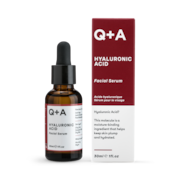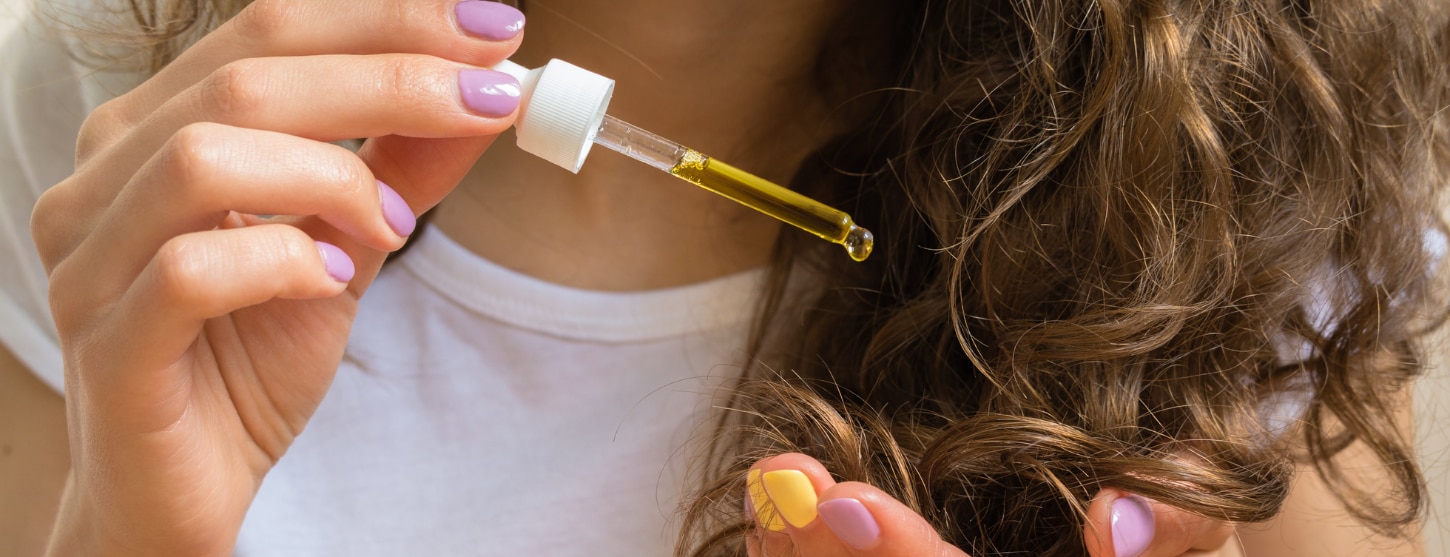15% off €25
Best serum for sensitive skin

Our top picks
Potent Hydrator

Q+A
Q+A Hyaluronic Facial Serum - 30 ml
Buy one get one 1/2 price
€9.00
Highly moisturising

Holland & Barrett
Holland & Barrett Vitamin C + Hyaluronic Acid Serum 30ml
Save up to 1/2 Price
€11.99
€15.99
Promote healthy skin

Q+A
Q+A Hyaluronic Facial Serum - 30 ml
Buy one get one 1/2 price
€9.00
Keen to add a serum to your daily routine, but not sure which one will suit your sensitive skin? Here’s what to look out for if you have a complexion that’s easily irritated and prone to redness or itching.
First things first, what is serum, and why should you use it?
If you’re a total newbie to serum, it’s worth knowing a little bit more about it before you go searching for one that’ll be kind to your sensitive skin.
Put simply, serums are skin care products which you typically apply to your face after you’ve cleansed, but before you moisturise. They’re made up of tiny molecules which penetrate deep into the pores and provide an extra boost of hydration to the very inner layers of your skin.1 Usually, serums are water-based products, although some also contain oils.2 Serums tend to be packed with beneficial nutrients for the skin, from vitamin C and E through to collagen and topical retinol which have fantastic healthy-ageing properties. These ingredients are formulated to target things like wrinkles, red marks, dehydration, and pigmentation. Once applied, you can use a moisturiser on top of the serum to smooth out your skin and lock in moisture.3
Is serum good for sensitive skin?
If you’re wondering whether a serum might suit your sensitive skin, the answer is yes! Nevertheless, serums often contain a high concentration of potent ingredients which may irritate your skin if you’re not used to them. Before using any form of a serum, test it out on a small patch of skin first.4
The best serum for sensitive skin
When it comes to the best serums for sensitive skin, it’s a good idea to specifically look for a product that’s been formulated for this purpose.
There are many different serums out there. From options designed to help stall the signs of ageing to those which are packed full of antioxidants and can help protect the skin from UV damage or pollutants.5 Check the labels and ingredients lists of products before you buy and look out for chemicals or any alcohol which might irritate your skin. Serums for sensitive skin tend to be more natural, gentler, and particularly excellent at boosting hydration.6
Hyaluronic acid is a popular ingredient in many serums. This is thanks to its ability to penetrate the pores and retain up to 1,000 times its weight in moisture. It’s also ideal for all skin types, even the most sensitive skin.7
Recommended by us...
- https://www.marieclaire.co.uk/beauty/skincare/best-face-serum-24325
- https://intothegloss.com/2016/03/what-is-serum/
- https://intothegloss.com/2016/03/what-is-serum/
- https://www.bustle.com/p/the-9-best-serums-for-sensitive-skin-67277
- https://www.today.com/style/what-serum-everything-know-about-face-serum-t149981
- https://www.bustle.com/p/the-9-best-serums-for-sensitive-skin-67277
- https://www.stylist.co.uk/beauty/hyaluronic-acid-dry-skin/197772





